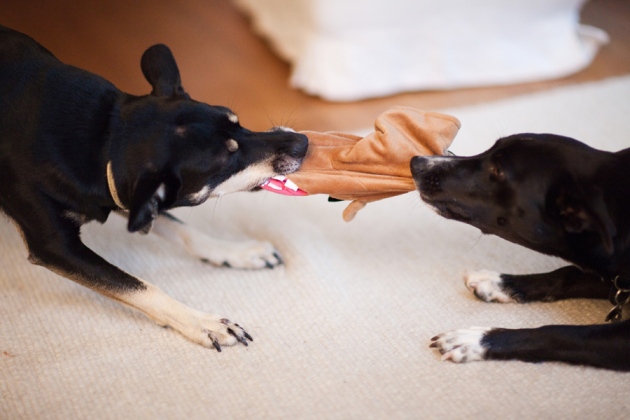Dog genetics spur scientific spat
Researchers disagree over canine domestication.

Scientists investigating the transformation of wolves into dogs are behaving a bit like the animals they study, as disputes roil among those using genetics to understand dog domestication.
In recent months, three international teams have published papers comparing the genomes of dogs and wolves. On some matters — such as the types of genetic changes that make the two differ — the researchers are more or less in agreement. Yet the teams have all arrived at wildly different conclusions about the timing, location and basis for the reinvention of ferocious wolves as placid pooches. “It’s a sexy field,” says Greger Larson, an archaeogeneticist at the University of Durham, UK. He has won a £950,000 (US$1.5-million) grant to study dog domestication starting in October. “You’ve got a lot of big personalities, a lot of money, and people who want to get their Nature paper first.”
In January, Erik Axelsson and Kerstin Lindblad-Toh, geneticists at Uppsala University in Sweden, and their colleagues reported inNature1 that genes involved in the breaking down of starch seemed to set domestic dogs apart from wild wolves. In the paper and in media interviews, the researchers argued that dog domestication was catalysed by the dawn of agriculture around 10,000 years ago in the Middle East, as wolves began to loiter around human settlements and rubbish heaps (see Naturehttp://doi.org/mv4; 2013).
But Larson, who has worked with Lindblad-Toh on other projects, says that their claim is dubious. He notes that bones that look similar to those of domestic dogs predate the Neolithic revolution by at least several thousand years, so domestication must have occurred before then.
